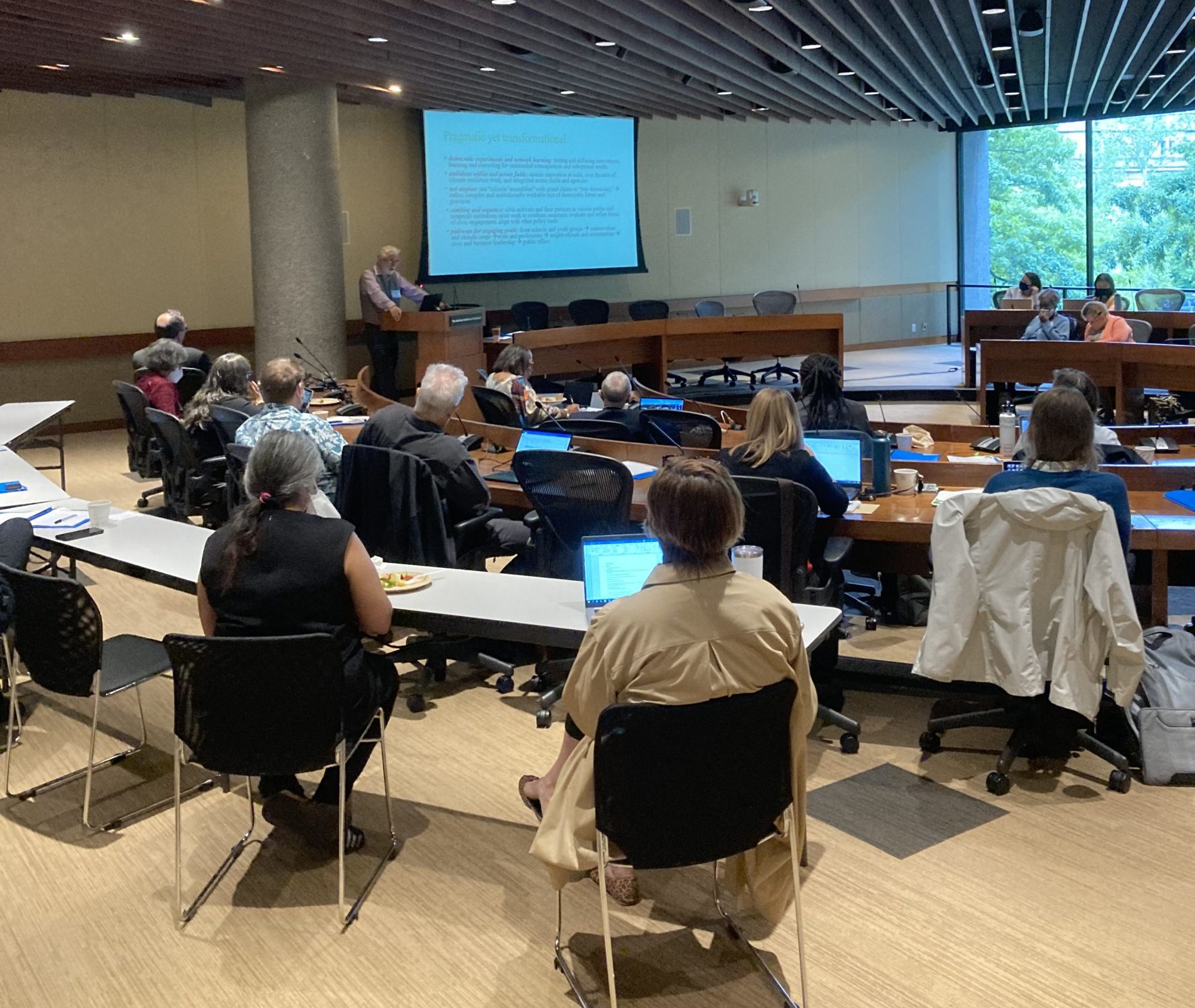This May, a group of 45 climate and civic engagement experts convened for two days in Washington, D.C. for the conference, Civic Engagement in American Climate Policy: Collaborative Models. The event was organized by CivicGreen and sponsored by the Jonathan M. Tisch College of Civic Life at Tufts University, in cooperation with the Kettering Foundation and the Center for Communities by Design of the American Institute of Architects (AIA).
Conference organizer, Carmen Sirianni, mentioned that the impetus for the gathering was to help develop federal policy designs based upon robust civic engagement models across multiple fields of practice and to help leverage these as an essential part of climate policy and investment in the coming years.

Panelists came from various walks of life, including institutions of higher education, think tanks, local and federal government departments, the media, nonprofits, and businesses. The gathering was kept intentionally modest to allow for robust conversation centered around a series of ten panels.
- Community design, public interest design
- Collaborative Environmental Justice and the CARE program
- Coastal resilience and sea-level rise
- Environmental education
- Climate and science communication
- Planning for Sustainable, Resilient, Healthy, and Just Cities
- Collaborative Community Conservation and Ecosystems
- Climate/Conservation Corps and National Service
- Geospatial mapping, narrative, and citizen science tools
- Pathways Forward: Building Capacities
Based on their field of expertise and assigned topic, panelists were encouraged to pose big questions about civic engagement and collaboration in an era of climate crisis, while grounding their conversation in specific forms of public participation and policy design.
Conference organizers asked attendees to keep the following questions top of mind throughout the event:
- Why civic engagement and multi-stakeholder collaboration: what specifically can these add amid the complexity of problems and the diversity of other types of tools in each policy area? How can we best align civic engagement with other tools, such as planning, regulatory, market, ecological, and information tools?
- What forms and toolkits: among the range of models for civic engagement and collaboration, which seem to be most appropriate or most promising, and which have not worked as well or have clear drawbacks? What mixes and sequences are most useful?
- How can public agencies at all levels of the federal system, as well as partnerships with civic and professional associations, foundations, training intermediaries, universities, and other institutions, help build civic capacities? What capacity-building policies and programs from recent years might be leveraged for larger purpose going forward?
In addition to discussing capacity building suggestions in specific fields, attendees contemplated blue-sky proposals that might not be realizable in the short term but might help define medium- and long-term policies and public investments appropriate to the scale and duration of the climate crisis.
CivicGreen is drafting a report that will tease out some of these key takeaways. The report will include research from the editorial teams of CivicGreen over the past two years, as well as the contributions of conference participants. A draft will be circulated for review and a final version will be released in September 2022.
As Carmen noted, “Our conference tapped the creativity and energy of so many types of stakeholders who are deeply committed to democracy and collaboration in responding to the climate crisis. We will circulate the report widely through relevant civic, educational, and professional associations, as well as through social media. We will also continue working with partners from public agencies and foundations, and we hope to engage relevant White House offices to include a more central role for community engagement in their strategies to address climate change, community resilience, and environmental justice.”
CivicGreen is a collaborative project among scholars and practitioners to enrich our democratic imagination and to expand our policy options for sustainable, resilient, and just responses to climate crisis in the United States in the coming decades. Their perspective is to locate civic engagement at the heart of work that needs to occur in communities of all kinds, across cities and regions, and among professional and other institutional partners that are key to solving problems for the long run.
Read more about their approach.



